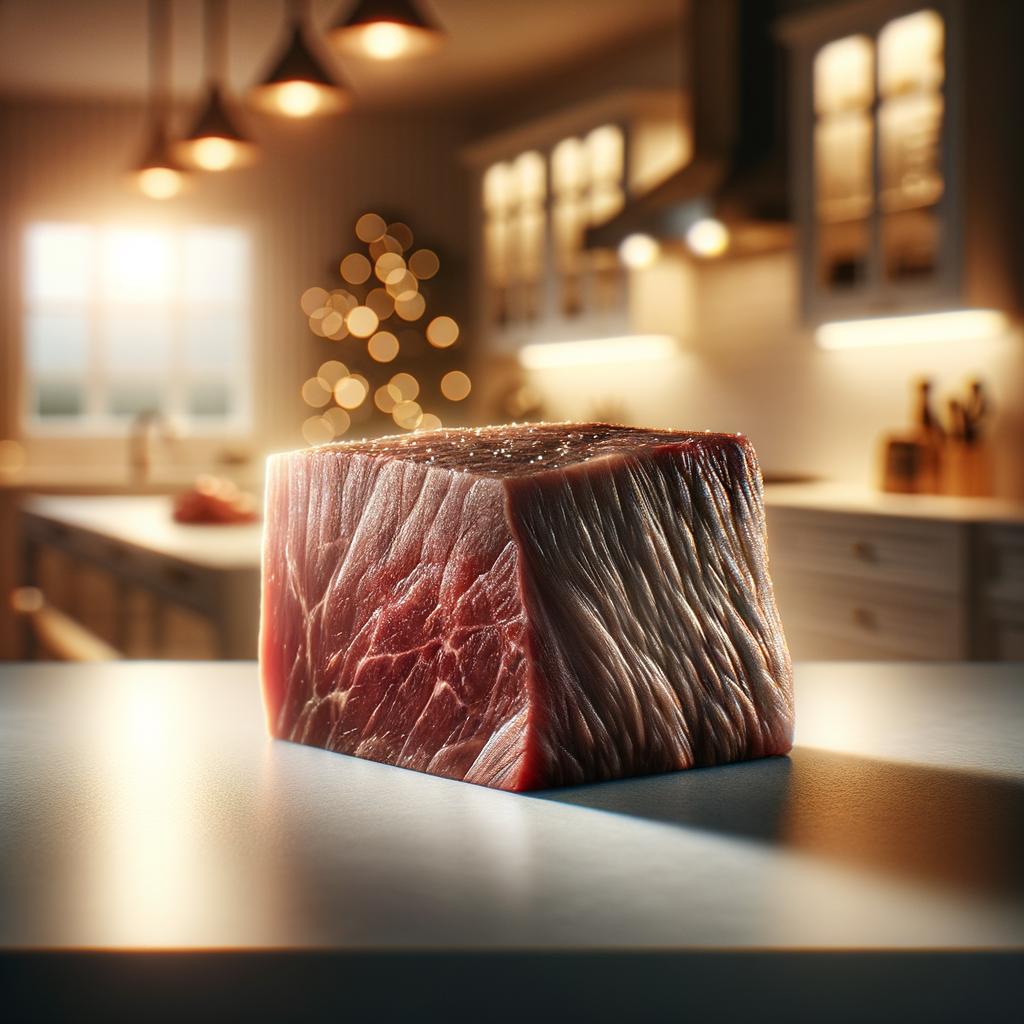Elk Meat

Description Elk meat, also known as venison, is a rare treasure in the culinary world. It is a deep, rich red in color, a testament to its robust flavor and lean texture. The meat has a tender, slightly gamey taste that sets it apart from other red meats, such as beef or lamb. Its flavor profile is a complex symphony of earthy, sweet, and slightly smoky notes, with a hint of wildness that whispers tales of the animal's free-roaming life. The unique characteristic of elk meat is its lean nature, having less fat than beef, which allows it to offer a healthier alternative without compromising on taste.
Primary Uses Elk meat is versatile and can be used in a variety of culinary applications. It can be ground for burgers, cut into steaks for grilling, or slow-cooked in stews and casseroles. Its unique flavor profile makes it a key component in a range of dishes, from the hearty elk chili popular in North American cuisine, to the delicate elk carpaccio found in upscale European dining. Beyond its culinary uses, elk meat has a cultural significance among Native American tribes, who traditionally used every part of the animal for food, clothing, and tools.
History The history of elk meat is as wild and untamed as the animals themselves. Native American tribes have been hunting elk for centuries, valuing the animal for its meat, hide, and antlers. The meat was often dried or smoked for preservation, creating a staple food source that could sustain the tribe through long winters. With the arrival of European settlers, elk hunting became a symbol of the frontier spirit. Despite its decrease in population during the 19th century due to overhunting, conservation efforts have successfully brought the elk numbers back. Today, elk meat is cherished as a sustainable, healthy alternative to conventional red meats, and its consumption is a nod to our ancestors and the wild, untamed history of our lands.
Nutritional Information Elk meat is a nutritional powerhouse, packed with protein, iron, and vitamin B12. It's a lean meat, lower in fat and cholesterol than beef, making it a healthier choice for red meat lovers. The high protein content supports muscle growth and repair, while the iron aids in preventing anemia. Compared to beef, elk meat has fewer calories and less saturated fat, making it a beneficial choice for those managing their weight or heart health. However, like all meats, elk should be consumed in moderation as part of a balanced diet. Its unique combination of flavor, history, and nutritional benefits make elk meat a fascinating and wholesome choice for the adventurous palate.

